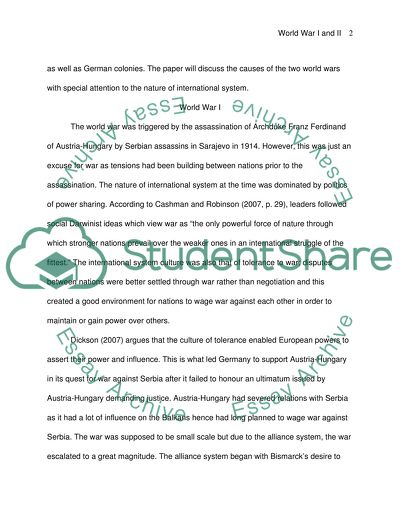Cite this document
(“World War I and II Essay Example | Topics and Well Written Essays - 2000 words”, n.d.)
Retrieved de https://studentshare.org/history/1435596--
Retrieved de https://studentshare.org/history/1435596--
(World War I and II Essay Example | Topics and Well Written Essays - 2000 Words)
https://studentshare.org/history/1435596--.
https://studentshare.org/history/1435596--.
“World War I and II Essay Example | Topics and Well Written Essays - 2000 Words”, n.d. https://studentshare.org/history/1435596--.


